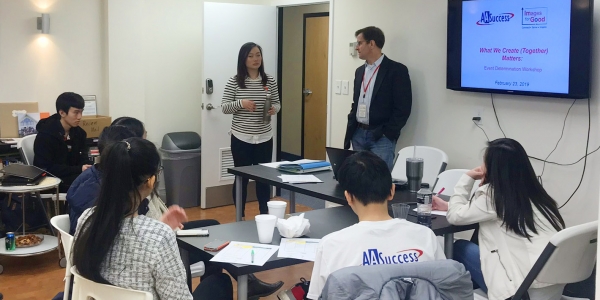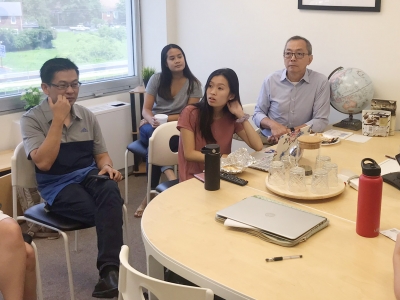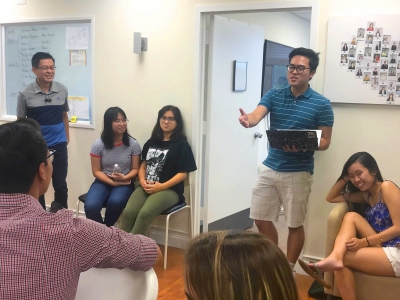Level 4: Community and Management Leadership
This level enables aspiring leaders to succeed in developing an extensive network of business entities and organizations to work together in improving our community and developing future philanthropists.
Learning Objectives
Student apprentices are challenged in professional work environments with a strong emphasis on technology skills, citizenship skills, and marketable skills, e.g., successful and dynamic communication techniques, leadership skills, problem solving, and sound decision making.
Complementing the apprenticeships will be seminars, workshops, business opportunities, career advancement opportunities – all of which are designed to provide the student more theoretical background and practical exercises for continuing career advancement and active citizenship.

Curriculum
Students will learn and practice the tools and techniques on how to create project plans and tips on how to effectively communicate with team members. Students will also learn about their own leadership styles.
This module will help students to distinguish strategic thinking from planning to operation, using systems thinking to see the big picture, recognize steps to help formulate a strategic critical mindset, and more.
Students will be given leadership project opportunities that relate to their career choices. Students are expected to complete at least five hours of work per week for forty weeks. Exact working schedule would be arranged with the supervising Life Skills Mentors.
This module will help students to recognize ways they can develop perseverance, apply strategies of resilience and perseverance to overcome a setback, turn a setback into a lesson learned and advantage for future plans, and more.
This year-round module is designed to help students recognize and apply the power of emotions, distinguish between IQ and EQ, improve their emotional self-awareness, communicate with empathy, and better manage their emotions to enhance their effectiveness as individuals when experiencing changes in both the body and mind.
Students learn how to apply the ability to make distinctions between competing choices and arrive at sound decisions. Through various life skills sessions at different levels learned over time, students will have the ability to evaluate complex, ambiguous and incomplete facts, and have the life skills necessary to make ethical decisions effectively.
In this module, students will learn the essential responsibilities they have when directing, delegating, developing and confronting their staff to achieve organizational goals. Best practices of each aspect of management will also be covered.




